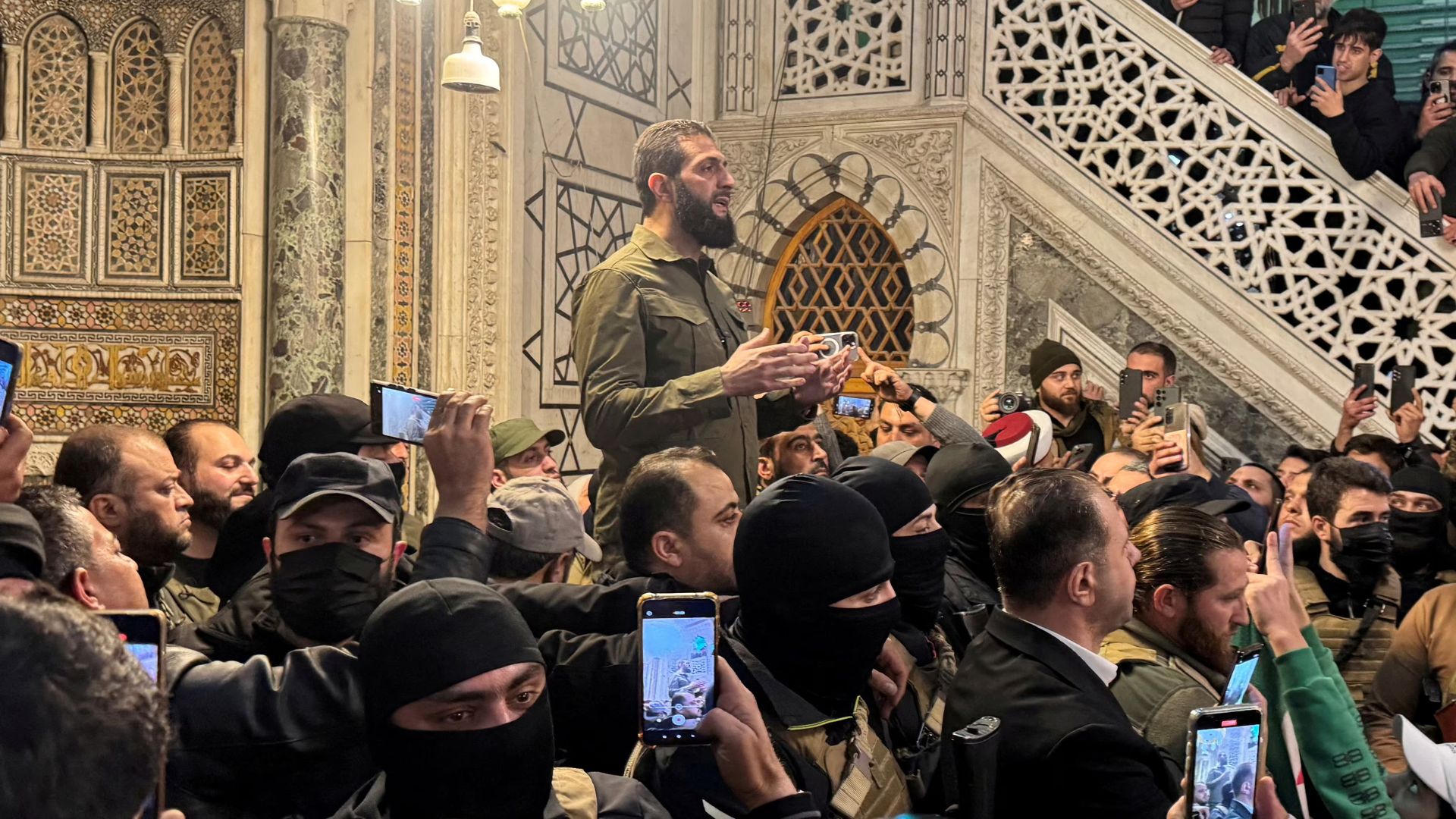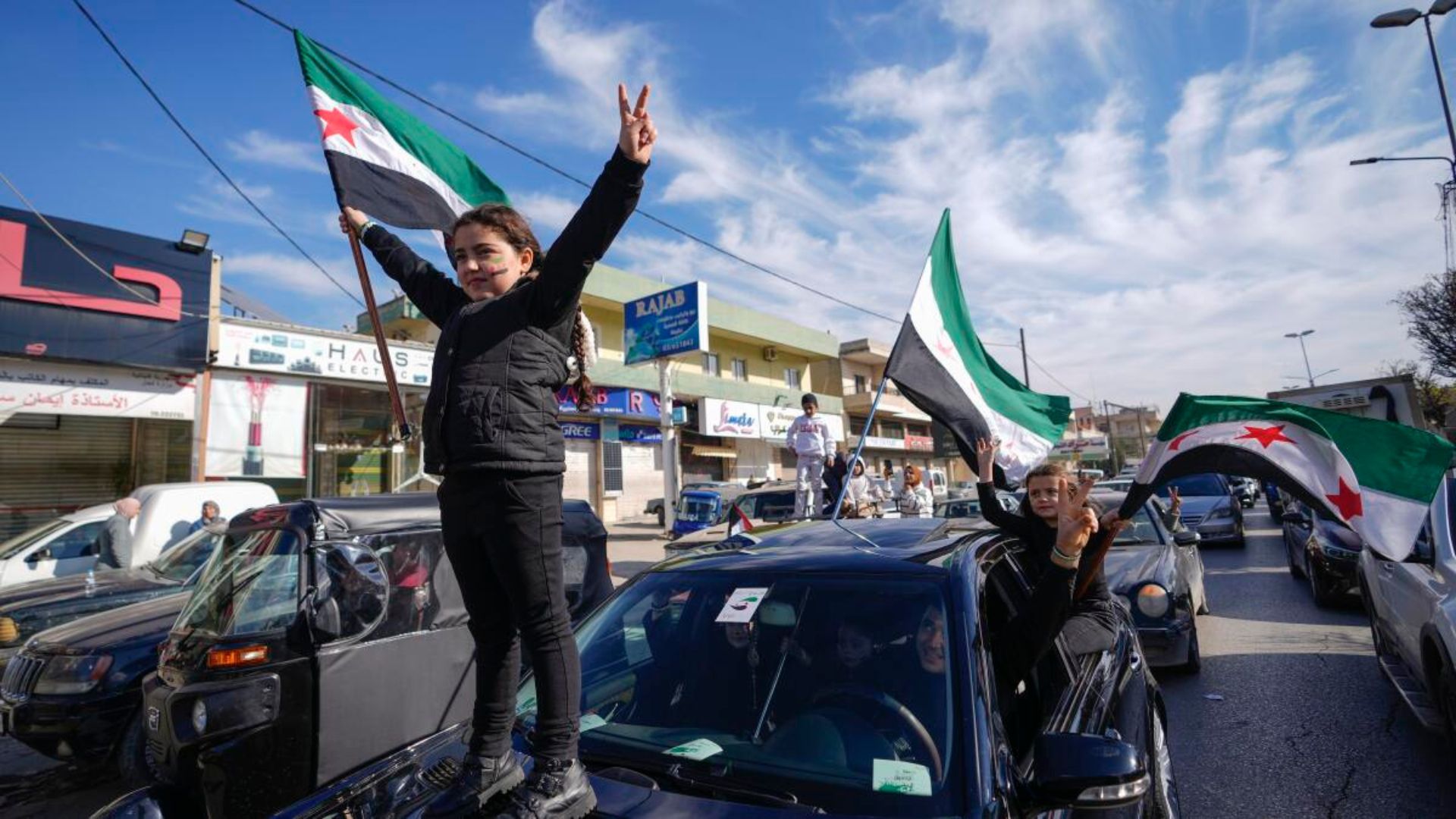(Reuters): President Bashar al-Assad's 13-year reign and his family's six-decade despotism came to an end Sunday as Syrian rebels took Damascus without resistance. A significant change in the area occurred when Assad fled to Russia.
A crucial turning point for the Middle East, the overthrow of Assad's regime destroyed a base of support that allowed Russia and Iran to influence the region. On Telegram, Russian Ambassador Mikhail Ulyanov revealed that Moscow has granted shelter to Assad and his family.
This development puts Russia's Mediterranean naval base in jeopardy and limits Iran's capacity to provide weapons to its allies. Additionally, it gives millions of Syrian refugees who have been living in exile for more than ten years hope that they will eventually return home.
Syrians saw an abrupt end to a devastating war that left hundreds of thousands dead, cities destroyed, and the economy ravaged by sanctions.

Speaking to a throng at the Umayyad Mosque in Damascus, rebel commander Abu Mohammed al-Golani bemoaned the plight of the refugees and said that a new chapter in the region's history was being written. He said he hoped Syria would become a shining example for the Islamic world.
Overnight, Assad's infamous police state—famous for its harsh persecution and mass detentions—dissolved. Political prisoners who had been released from prisons flooded out, reuniting with their families and celebrating their freedom.
At Sednaya prison, emergency teams, including the White Helmets, began searching for underground cells thought to hold detainees. Joyful scenes of prisoners celebrating in Damascus were captured on video.
As Assad fled, the streets of Damascus saw rebels patrolling on motorcycles, some looting, and abandoned military checkpoints. Burning Syrian military vehicles and defaced Assad posters symbolized the regime's collapse.
Israeli airstrikes targeted Syrian state security facilities in the Mazzeh neighborhood, causing thick black smoke to rise. Gunfire echoed intermittently in celebration.
As rebels enforced a curfew, residents of Damascus quickly stocked up on food. As the sun sank on a capital free of the government, the normally busy streets of the city grew quiet.
In the central center of Damascus, thousands of people gathered, chanting for freedom and waving flags. While exploring the Al-Rawda Presidential Palace, some people parked their motorcycles and took furnishings.
The rebel coalition declared its intention to establish an executive-branch transitional government. In order to remember the sacrifices made during the fight, they called for unity and underlined the transition from revolution to reconstruction.
Mohammad Ghazi al-Jalali, the former prime minister, acknowledged talks with Golani on a peaceful transition and demanded free elections. Golani reaffirmed that this win could not be undone.
The rapidity of the events alarmed nearby nations, sparking worries about additional instability in a region already tense due to the continuing conflict in Gaza.
Although he recognized the dangers, U.S. President Joe Biden celebrated Assad's downfall as a moment of promise. In order to handle the transitioning phase and promote stability, he promised US assistance.
While Secretary of Defense Lloyd Austin spoke with Turkey and emphasized the importance of closely monitoring the situation, the U.S. military started airstrikes against Islamic State camps in central Syria.

As opponents flew their revolutionary banners in place of the Assad-era ones, Syrian embassies throughout the world celebrated with joy. The fall of the regime brought joy to the Syrian diaspora around the world.
Israeli Prime Minister Benjamin Netanyahu highlighted the importance of military operations in undermining Assad's backers and attributed Assad's downfall to Israel's activities against Iran and Hezbollah.
The overthrow of the Assad administration was hailed by French President Emmanuel Macron as a victory against tyranny and the end of a "barbaric state."
Bringing a divided populace together and obtaining billions of dollars in foreign aid to restore the war-torn country are just two of the formidable tasks facing Syria's new authorities.
During the war, Assad and Russian forces devastated cities with relentless bombings, creating one of the worst refugee crises in modern history and straining Europe during the 2015 migration wave.
While the United States backed a Kurdish-led coalition that fought ISIS from 2014 to 2017, Turkey had aided insurgents in a small enclave close to its border.
Russia and Iran, whose military actions initially assisted Assad in regaining a large portion of Syria, are the main losers in this geopolitical change. The influence of both nations in the region has now decreased.
Assad became more vulnerable and alone in the struggle as a result of Russia's concentration on its war in Ukraine and Iran's weakening allies, especially Hezbollah.
Iran's capacity to back Assad was further weakened by the effects of the Gaza conflict, especially Hezbollah's casualties to Israeli bombings, which paved the way for the rebels' quick advance.
Syria embarks on a new chapter with the exit of Assad. The world keeps a watchful eye on the country as it struggles with reconstruction, rapprochement, and determining how to move forward without dictatorship.




























